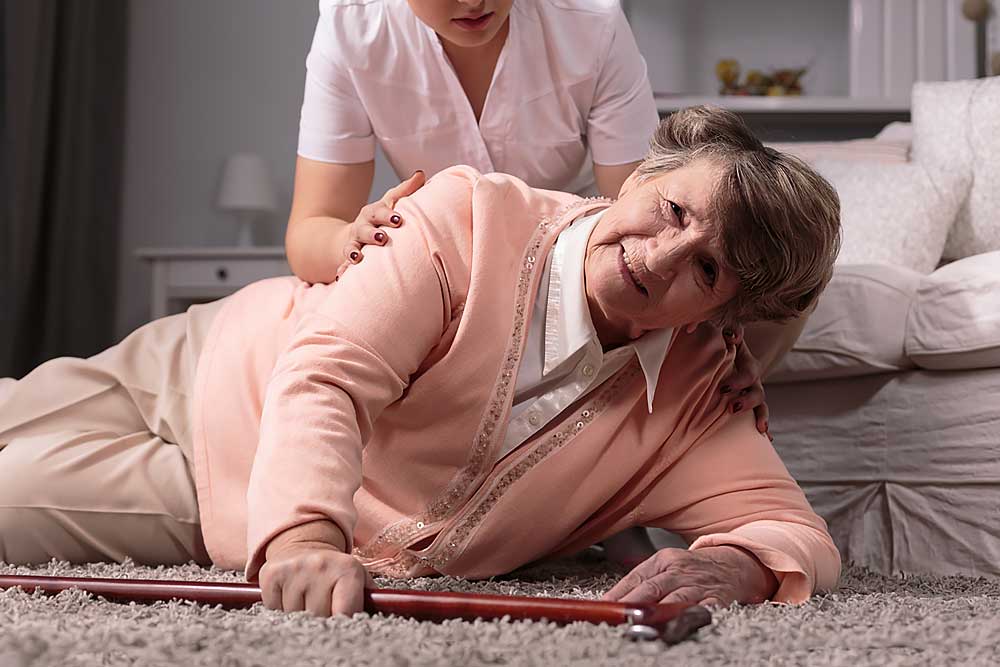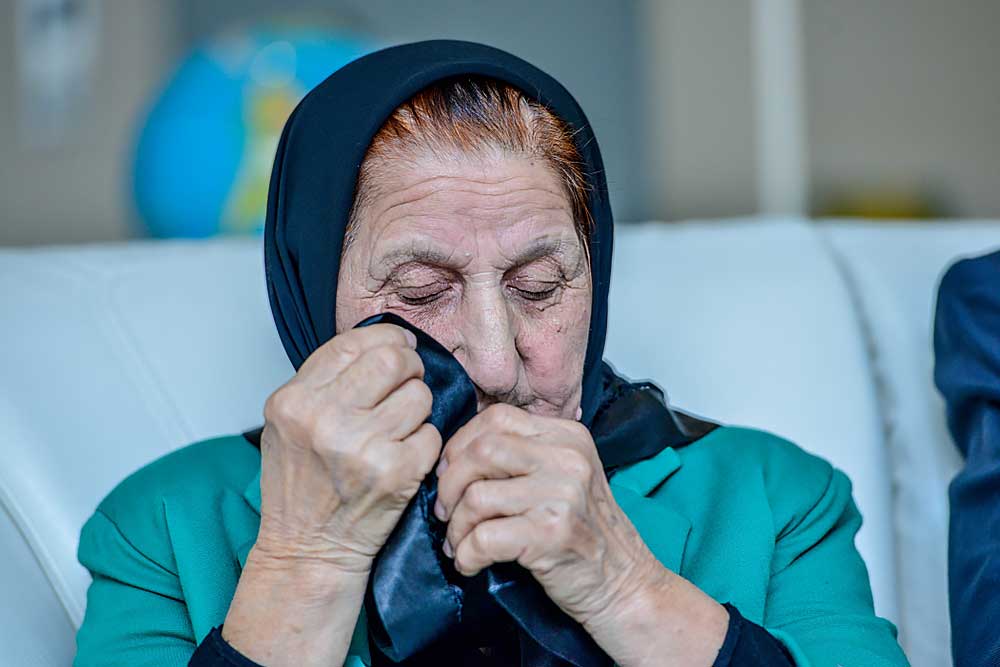
Nursing home residents who have been abused can exhibit several types of injuries. Some of them, like bruising, lacerations, bedsores, and fractures, may be easy to identify. Others, like depression, and anxiety, maybe harder to detect.
Though not all injuries indicate abuse, it’s important to evaluate any injuries or impairments that happen while your loved one in under the care of nursing home staff. The injuries below represent those most frequently associated with abuse, including physical, sexual, emotional, psychological abuse as well as neglect.

Physical Injuries and Signs of Abuse
Bedsores
Also known as pressure ulcers, bedsores are the result of prolonged pressure on a victim’s skin. Bedsores can happen on any part of the body, but they most frequently appear on ankles, hips, heels, and other parts of the body that are considered “bony” and prone to pressure or friction. The affected site can be red, swollen, and/or tender and may drain fluid.
Bedsores occur when patients with limited to no-mobility are left in the same position for an extended period. As such, they can indicate neglect.
Bedrails are often used as a safety measure, but they can also lead to serious and sometimes fatal injuries. Patients can become entrapped or suffocate by sliding through bedrails.
These injuries can occur due to design flaws but can also indicate a lack of preventative care or neglect.
Brain injuries can further impair already vulnerable nursing home residents. One of the most common reasons for brain injuries is falling, but there are other ways victims can suffer from a brain injury. Victims can also experience brain injuries due to physical abuse, improper administration of medication, hazardous or unsafe living conditions, or a lack of medical attention in the event of other types of trauma.
Bruises can be a common occurrence in the elderly. Bruising can have natural causes, like thinning skin, and medical causes, like blood thinners. However, unknown, unexplained, or extensive bruising can also signify physical or sexual abuse as well as neglect.
Burns can occur as a result of extreme heat or friction. In a nursing home environment, burns can indicate the use of physical restraints, contact with heating devices (e.g., radiators, hot plates, and coffee makers), exposure to scalding hot liquids (e.g., bathwater or beverages), or as a result of accidental fires. As such, burns can be a symptom of multiple types of abuse, depending on the circumstances that led the burn.
Elderly individuals are often more prone to falls and subsequent injuries; however, some falls are preventable and may indicate abuse. This includes physical and sexual abuse as well as neglect. This is particularly true when falls occur due to an unsafe or hazardous environment or improper, broken, or unavailable equipment or aids (e.g., wheelchairs, bed rails, proper footwear, etc.)
Gangrene is a serious condition that results in the death and decomposition of tissue. Gangrene can occur when an infection is left untreated or there is a lack of circulation to a particular part of the body.
Gangrene can lead to redness and swelling, sores and blisters, or a loss of feeling around the affected area. Gangrene can also cause the skin around the affected area to turn blackish-green in color and take on a foul odor.
When caught early, some patients can be successfully treated with antibiotics. If left untreated for too long, gangrene may require amputation or could result in death.
Respiratory, soft tissue, urinary tract, gastrointestinal and other types of infections can occur for many reasons. They can also indicate physical abuse, sexual abuse, and negligence. This is particularly true when infections are left untreated. Untreated infections can result in sepsis, a life-threatening condition that damages tissue and can lead to organ failure.
Lacerations are cuts that go deep into the skin, with significant lacerations extending to muscle matter. Though abuse is not the only activity that can result in lacerations, it can be a symptom of physical abuse as well as negligence.
Both malnutrition and dehydration indicate that the victim has been denied or is otherwise not receiving adequate amounts of food, vitamins, nutrients, and water. This can be a symptom of multiple types of abuse or negligence.
General oral health problems can increase with age, but that is not the case for oral or dental drama. Broken teeth, jaws, lacerations, burns, bruising, or cuts can be a sign of physical or sexual abuse as well as negligence
Pelvic injuries, such as fractures, can indicate sexual assault as well as other forms of abuse including physical abuse or negligence.
Poor hygiene can lead to several serious conditions, including infections, pneumonia, and gangrene. It can also exacerbate existing conditions and make it harder for victims to heal. Finally, poor hygiene can affect an individual’s emotional wellbeing, leading to depression.
Even though many seniors remain sexually active by choice, sexually transmitted infections and diseases like chlamydia, syphilis, and gonorrhea can indicate sexual abuse. This is particularly true for patients who unable to offer consent or otherwise engage in sexual activity due to physical or cognitive impairments
The trauma associated with any type of nursing home abuse can lead victims to experience several mental and emotional conditions. These include:
Symptoms of fear and anxiety can manifest in several ways, including restlessness, rapid breathing, sweating, trembling, trouble sleeping, and gastrointestinal issues.
Seniors with depression may exhibit feelings of sadness and despair, loss of self-worth, chronic aches and pains, decreased interest in activities they once enjoyed, lack of energy, and changes in sleep patterns.
Victims of abuse that experience PTSD can are more likely to avoid any activity, person, or place that reminds them of the traumatic event and may have flask backs and nightmares about the event. They may also struggle with anger management, concentration, irritability, and nervousness.
Victims of abuse can begin to question their value and role in the world around them. They may withdraw from social settings, become angry or anxious, be sensitive to criticism, or become preoccupied with what they perceive as shortcomings. They can also suffer from many of the symptoms associated with depression and anxiety.
Suicidal thoughts and ideation can be caused by the physical and emotional trauma that accompanies abuse. Though suicidal thoughts aren’t always easy to detect, victims may talk about committing suicide, attempt to procure items to assist in suicide, be preoccupied with death, give away belonging, or otherwise engage in self-destructive or risky behavior.
Symptoms and signs of Financial Abuse and Exploitation
Not all signs and symptoms of abuse are specific to the way a victim looks or feels. This is particularly true when it comes to financial abuse and extortion. If you notice any of the following, your loved one may be a victim of nursing home financial abuse:
- Unexplained withdrawals or other financial transactions
- Several checks or transfers to a specific person without explanation
- Any financial transactions between a caretaker and the victim
- Unpaid bills
- Lack of funds, overdrafts, etc.
- Unusual donations and sponsorships
- Damage to the victim’s credit score

